Overview
Glass Advantage
Excellent Mechanical Strength
Chemically Strengthened Glass Is Always Excellent At Mechanically Strength
Chemical strengthened glass is 15 to 20 times tougher than ordinary float glass. It has remarkable increase of impact resistance. Compression layer depth could be up to 10 to 150 m according to chemical ion exchanging time. Surface compression could go up to approximately 600 N/mm2 (Mpa). The longer the chemcial reaction, the deeper the depth and the higher the compression.
Glass chemically strengthening process improves its mechanical characteristics of residual stress characterized by a superficial pre-compression condition which contrasts the effect due to the presence of the cracks.
Marvelous Flexural Bending Strength
Chemical Strengthen Glass Is "Flexible" & "Elastic"
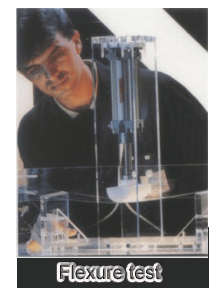
After chemical strengthening, glass central tension is very low and is almost neglected. Fragile and stiff glass becomes flexible and "elastic" while tougher. When there is external force, it acts like a sponge to "absorb" the action and rebound like high elasticity rubber sheet.
When glass is submitted to traction stress, the presence of microscopic cracks (fissures) on the glass surface, leads to the apex becoming over stretched which increases the size of the cracks until the glass breaks. This is the main reason for low mechanical resistance of glass when it is stressed by traction.
Scratch Proof
Hard Surface Is Another Remarkable Characteristic Of Chemical Strengthen Glass
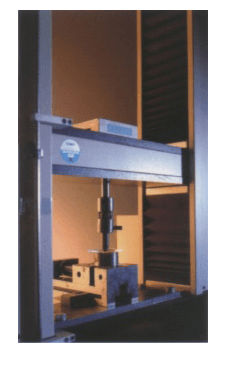
Chemically strengthen glass surface is re-structured. It is more stronger and resists scratch.
Remarkable Thermal Stability
Sudden Cooling Of Hot Chemical Strengthened Glass Does Not Break
Chemical strengthen glass withstands severe thermal stable tests. Thermal shock makes no harm when hot glass is suddenly bath in ice water.
Optical Distortion Free
Ion Exchange Process Does Not Affect Glass Optical Property
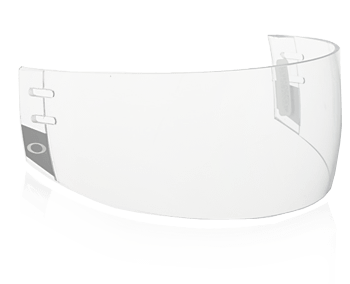
Glass property remains unchanged after chemically strengthening.
No Geometrical Distortion
Glass Does Not Deform After Chemical Strengthening
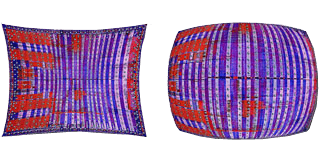
Glass is geometrically distortion free after glass strengthening process. The chemical reaction does not affect glass geometric shape. The form and shape of glass putting inside bath tank does not change when it is unloaded from the tank after chemical strengthening.
Perfect Flatness
Chemical Strengthen Glass Remains Perfect Flatness If It is Perfect Flat Before Ion Exchange
During glass ionic exchange, glass standstills inside chemical bath. There are no rollers and no conveying mechanism. The glass is as flat as it is before reaction. It is as flat as float glass.
Free Of Roller Marks
Roller Mark Free Of Chemically Strengthened Glass
There are no rollers in glass chemically strengthened oven, so no roller marks shall occur.
No Mould Marks
Chemically Strengthened Glass Is Free Of Mould Marks
Curve chemically strengthened glass is always achieved by bending flat glass with ordinary bending oven. The curve glass is then loaded in ion bath tank for chemical strengthening. It is a two steps process. It is free of mould marks.
No Thickness Limitation
Glass Thickness Does Not Matter To Chemical Strengthening Process
Any glass thickness could be chemically strengthened, for example, 1mm or less. This property is helpful especially for flat panel display which requires high impact strength glass.
Light Weight
Thin Light Strengthened Glass Is Always Done By Ion Exchange Process

Thin chemically strengthened glass obtains high mechanical strength that thick heat tempered glass achieves. This greatly reduces weight and bulky glass composition.
No Minimum Size Limitation
Any Glass Size Could Be Chemically Strengthened.
Any tiny glass could be chemically strengthened. No more restriction in minimum glass size.
No Shape Limitation
Chemically Strengthen Process Is Applicable To Any Glass Shapes & Forms

Any glass shape could be chemically strengthened, for example, single, double, compound curvature, S or L glass shapes for flat glass processing. Others include glassware, container glass, pharmaceutical glass, kitchenware, cookware and ovenware, etc.
Complex Shape
Chemially Strengthen Of Complex Glass Shape Is As Easy As Flat Glass
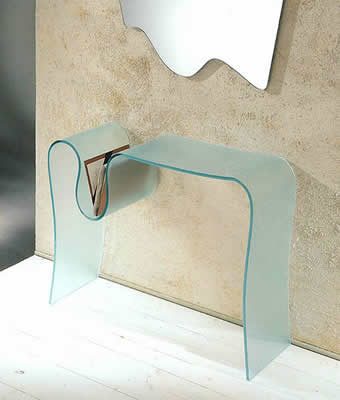
When curve chemical strengthen glass shape is required, flat glass is always bent in ordinary bending furnace first. Then it is bath in potassium salt for chemical strengthening. Ordinary bending and annealing oven could make complex glass shape that bending and heat tempering furnace simply could not achieve.
Any Glass Composition
Any Glass Composition Could Be Strengthened By Ion Exchange Process As Long As It Is Alkaline Glass
Most of glass chemical composition can be chemically strengthened as long as there is a certain initial content of alkali oxides. This allows a great many choices of glass compositions according to different applications.
Na+ K+ Li+ Mg+
No De-Lamination
Two Pieces Of Chemically Strengthened Glass Has No Room For De-Lamination
Flat chemical strengthen glass is perfect in flatness. Curve chemical strengthen glass is bent in ordinary bending oven. Therefore, there is no gap between two pieces of glass during laminating and thus, there is no room for glass de-lamination. Meanwhile, instead of thick PVB or EVA interlayer, thinner films could be employed.
Allow Cutting
Strengthen Glass Could Be Cut If It Is Made By Ion Exchange Process
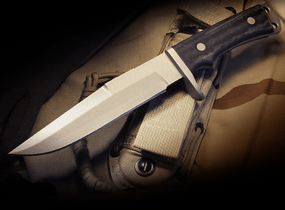
Cutting of chemical strengthen glass is permitted with proper cutting tools and breakout skills. Large pieces of glass are firstly chemically strengthened when final sizes are still unknown. They are then sold out to buyers who only know final sizes at last minutes. This advantage is particularly important when glass distributors would like to keep stocks for immediate delivery.
Easy Site Work
Site Work Becomes Easier If Glass Could Be Cut
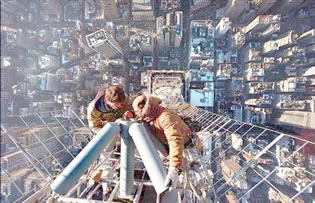
Cutting of chemically strengthened glass can be performed with proper cutting tool and breakout skill. This allows flexible installation at site.
Low Mounting Cost
Thin & Light Glass Reduces Framework & Mounting Costs

Chemical strengthen glass is thin and light but with high strength. Framework and mounting costs are low when glass is thin and light.
Hold in Frame
Broken Chemical Strengthen Glass Does Not Fall From Frame
When chemical strengthen glass is broken, it cracks in large pieces with edges still hold within framework.